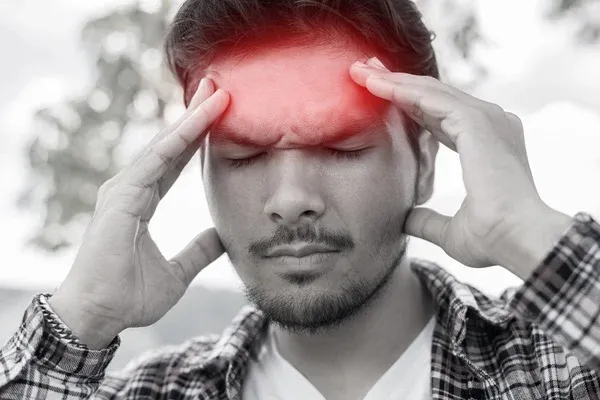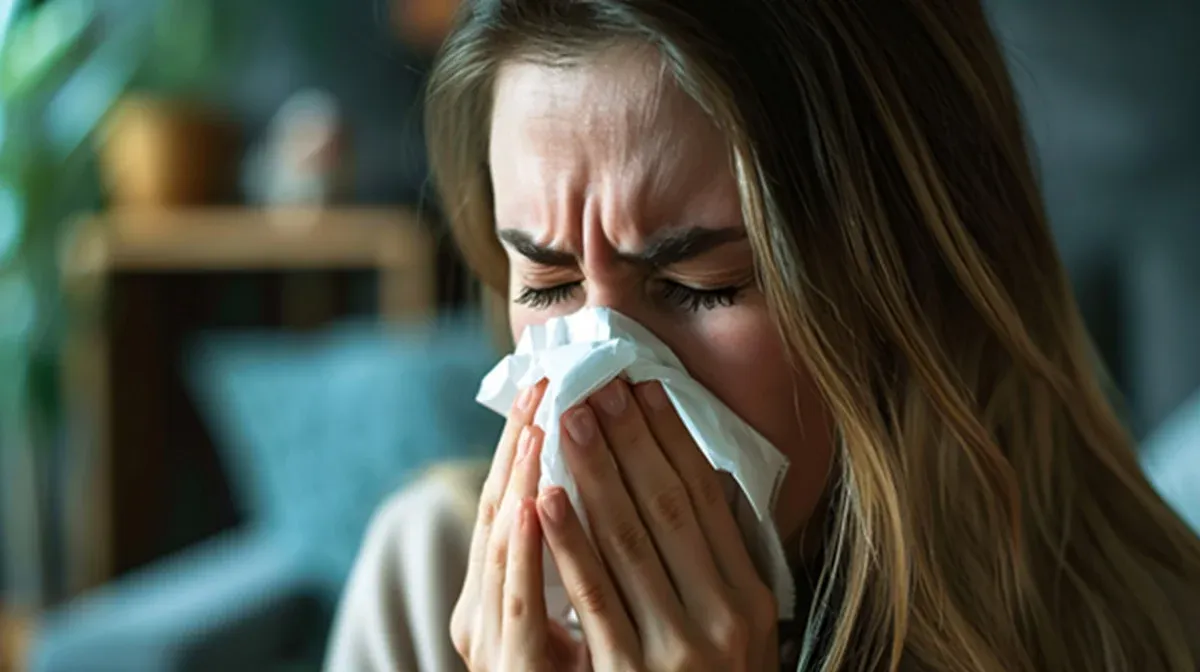Managing Seasonal Allergies to Prevent Sinus Issues
Dental Implants Solutions
The sinuses are a series of hollow spaces within the skull that are air-filled and communicate with the nasal cavities. Sinusitis is a condition in which the nasal passages become swollen due to an allergic reaction, and the sinus opening is blocked. It usually manifests with swelling, pain, and pain on the face and head, as well as occasional nasal congestion.
It is important to know what causes allergies and sinuses and how they relate to each other. If allergy sufferers can regulate their symptoms, they can lower the incidence of sinus infections and promote general well-being.
This blog post will look at what causes seasonal allergies, identify symptoms, and provide practical advice for keeping seasonal allergies away from the sinuses.
Common Triggers of Seasonal Allergies
Being able to identify things that lead to seasonal allergies is the first part of successfully preventing sinus issues. Here are some of the most prevalent allergens that can cause seasonal allergic reactions:
1. Pollen
- Tree Pollen: During the spring, the pollen of trees like oak, maple, and birch is released into the atmosphere by the millions, triggering allergies.

- Grass Pollen: Grass – Bermuda, Rye, and Kentucky Blue – are the worst offenders from late spring and early summer.
- Weed Pollen: In late summer and fall, weeds like ragweed, sagebrush, and pigweed release pollen that causes an allergic reaction.
2. Mold Spores
- Outdoor Mold: Fungal spores from plants and other moist vegetation may be easily aerosolized.
- Indoor Mold: Bathrooms, kitchens, and basements are even worse as there are some areas where mold thrives indoors and can trigger allergies.
3. Dust Mites
Dust mites are tiny arthropods that live in the dust collected in the houses, particularly on the mattresses, furniture surfaces, and carpets, especially in the rooms. It is an ever-present allergen yet could be bothersome during periods of the year when houses are closed and ventilation is minimal.
4. Animal Dander
Cats, dogs, and other furry pets create an allergic problem all year round. It can even become more pronounced when pets shed during the spring or fall seasons.
5. Cockroach Droppings
Cockroach dander and body waste can cause asthma and allergies in environments like urban neighborhoods. These allergens can become more dangerous in warmer weather during the active life of the cockroaches.
6. Air Pollutants
Smog, vehicle exhaust, and chemical emissions from factories and power plants can aggravate the allergy symptoms. These pollutants are harmful to the respiratory system and can easily trigger high sensitivity to allergens.
7. Seasonal Changes
Temperature variations and changes in humidity levels during the day can also lead to severe allergies. For instance, spring signals the beginning of warmer seasons and increased pollen, while the fall season brings mold spores to the leaves.
Identifying Your Triggers
This is why it is crucial to determine which allergens affect you the most. Writing down details about your allergy in a journal may give insight into the time and place of the reaction and thus help identify the allergen. The allergy testing done by a health care provider can also be very accurate in telling the kind of allergen responsible for the allergy, hence directing the treatment procedure.
This awareness of the most common triggers will enable you to avoid such exposure to avoid your sinus problems.
Recognizing Symptoms of Seasonal Allergies and Sinusitis
Identifying the signs and conditions that can cause seasonal allergies to the sinuses is important in managing and preventing the condition. Both conditions can be uncomfortable, but since they have overlapping characteristics and triggers, it is crucial to draw a clear line between them.
Symptoms of Seasonal Allergies
Allergic rhinitis or hay fever is a condition in which the immune system reacts abnormally to allergens in the air, such as pollens of trees, grass, weeds, or other plants; spores of molds and fungi; or tiny particles of animals that are present in the air we breathe. Common symptoms include:
- Sneezing: Seasonal allergies are characterized by relentless and unstoppable sneezing.
- Nasal Congestion: Nasal congestion is a nasal impairment due to inflammation of the nasal mucosa.
- Runny Nose: Nasal congestion is caused by too much discharge, which is usually clear and whitish.
- Allergy: Runny or Stuffy Nose, Sore Throat, Red or Itchy Eyes.
- Watery, Red Eyes: Allergic conjunctivitis leads to inflammation of the eyes, itching of the eyes, and the formation of tears.
- Coughing: Dry cough is a common symptom where the mucus produced in the nose or the sinuses drains down the throat, resulting in irritation.
- Fatigue: Allergies, particularly pollen sensitivities, can cause tiredness and a general feeling of being sick, often from lack of sleep.
Symptoms of Sinusitis
- Facial Pain and Pressure: Pain and discomfort around the forehead, eyes, nose, and cheeks.
- Headache: Recurrent headaches being concentrated around the sinus areas.
- Nasal Congestion and Discharge: Greenish or yellow nasal discharge or phlegm drained back into the throat (postnasal drip).
- Changes in the sense of Smell and Taste.
- Cough: Worse at night due to postnasal drip.
- Ear Pain or Fullness: Earache or feeling of blockage in the ears.
- Bad Breath: Halitosis from pus secretions from the infected sinuses.
Difference between Allergies and Sinusitis
While both conditions share symptoms like nasal congestion, runny nose, and cough, there are distinct differences.
- Duration: Allergic rhinitis symptoms occur if the allergenic substances are present; sinusitis symptoms may continue longer and even occur after a cold or long-term allergy.
- Nasal Discharge: The discharge in allergy-related nasal discharge is clear and watery, whereas the discharge in sinusitis is thicker and may be yellow or green.
- Facial Pain: Sinusitis's pain and pressure is much more severe than allergies.
When Allergies Lead to Sinusitis
Symptoms of severe allergies or allergies that continue to recur can result in sinus swelling, which blocks the air passages, allowing bacteria to thrive and causing a sinus infection. This progression highlights the crucial role of controlling allergies in mitigating the risk of acquiring sinusitis.
When to See a Doctor
Self-care for seasonal allergies or sinus symptoms frequently requires a person to change their habits and purchase nonprescription products. Still, there are situations where the intervention of a qualified practitioner becomes indispensable. This is so that patients will know when to visit a doctor and avoid potential complications and receiving inadequate treatment.
1. Persistent Symptoms Despite Home Treatment
There is a need to consult a doctor if you have been using over-the-counter drugs and other home remedies without seeing any relief from symptoms after a couple of weeks. Persistent symptoms might suggest that a psychological or psychiatric condition exists, and prescription drugs or other treatments might be needed.
2. Severe Symptoms
- Intense Facial Pain: A sinus infection is characterized by intense pain around the eyes, forehead, or cheekbones that requires medication.
- Swelling: A swollen eye or face should be investigated rapidly.
- Fever: A painful sinus accompanied by a fever greater than 101 degrees Fahrenheit (38. 3 degrees Celsius) is an indication of bacterial infection, which should be treated with antibiotics.
3. Recurrent Sinus Infections
Chronic or recurrent sinusitis – defined as sinus infections that occur more than three to four times per year or sinusitis that lasts for more than 12 weeks – should be evaluated by a healthcare professional to identify the source of the problem and find proper treatment.
4. Complicated Medical History
Suppose you have a history of asthma, chronic respiratory diseases, or other conditions that may weaken your immune system. In that case, you are at a greater risk for further health problems associated with sinus and allergies. Thus, it is an added advantage to consult a doctor to manage these risks effectively.
5. Nasal Obstructions
One should seek medical care if the person has nasal symptoms such as restricted airflow through the nose, constant breathing of the nose, or if the person has nasal obstructions like polyps.
6. Vision Changes
If a person is experiencing blurred vision, double vision, or eye pain along with symptoms of a sinus infection, it should be addressed as such because this can be a manifestation of a serious sinus infection that may be affecting the eyes.
7. Unusual or Severe Headaches
A headache that cannot be treated with an over-the-counter analgesic or is accompanied by neck stiffness, nausea, or vomiting is a cause for concern and needs medical attention to exclude meningitis.

Conclusion
Some sinus and allergy signs and symptoms can be treated with home remedies, but some require a doctor's attention. Be aware of these symptoms and seek medical attention immediately to improve outcomes and general health outcomes. So, whenever one is in doubt, it is always advisable to seek medical advice from the doctor.
Contact your Walnut Creek dentist, Dr Massood Darvishzadeh, DDS at Dental Implant Solutions, to learn about Managing Seasonal Allergies to Prevent Sinus Issues.
Resource:
What are complications related to sinus lift surgery?
*This media/content or any other on this website does not prescribe, recommend, or prevent any treatment or procedure. Therefore, we highly recommend that you get the advice of a qualified dentist or other medical practitioners regarding your specific dental condition*
Subscribe To Our Newsletter
Get Updates And Learn From The Best
More To Explore



CONTACT US
Massood Darvishzadeh, DDS
2021 Mt Diablo Blvd., Suite 100A
Walnut Creek, CA 94596
(925) 939-2600info@dentalimplantsolutions.net